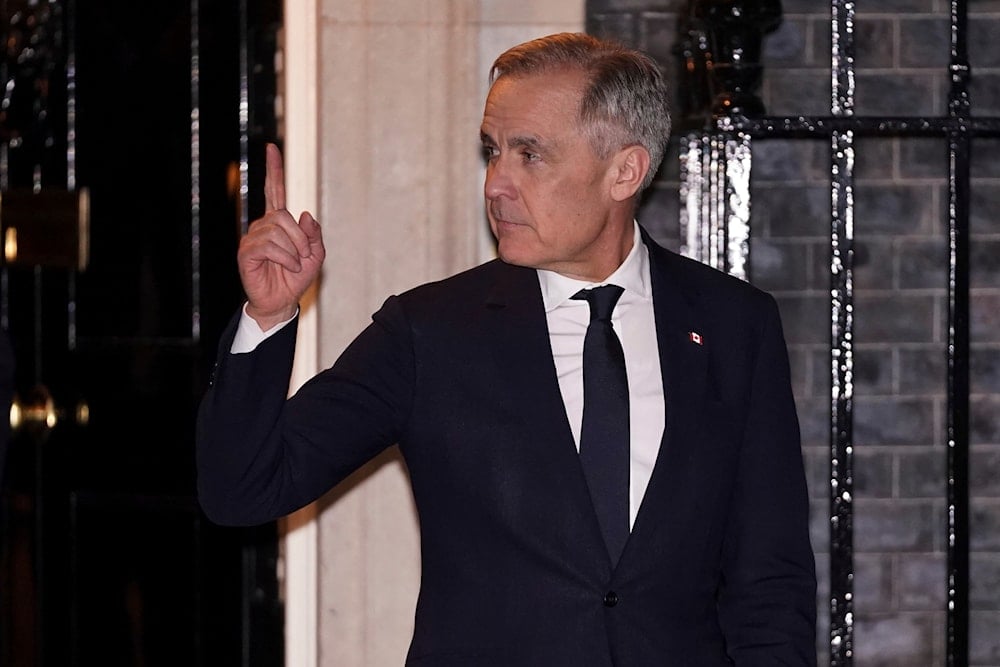Canada to limit contacts with US tech firms over tariffs
Canadian Prime Minister Mark Carney announced that his country will reduce interactions with US tech companies, as part of a wider set of measures battling Trump's tariffs threats.
-

Canada's Prime Minister Mark Carney leaves 10 Downing Street after a meeting with Britain's Prime Minister Keir Starmer in London, Monday, March 17, 2025 (AP)
Canada plans to scale back business interactions with US technology companies as part of its retaliatory response to tariffs imposed by US President Donald Trump.
Canada is set to reduce business engagement with technology companies based in the United States as part of a broader package of retaliatory measures, according to a report by The Globe and Mail that cites Canadian Prime Minister Mark Carney.
Carney noted that the government's economic strategy focuses on enhancing the capabilities of domestic technology companies while simultaneously working to minimize dependence on U.S. providers as part of a broader effort.
Carney announces 'end of US partnership' amid tariffs
Canadian Prime Minister Mark Carney announced on April 18 that the longstanding partnership between Canada and the United States has effectively ended, signaling a major turning point in the relationship between the two countries.
"We recognize that the relationship that Canada had with the United States for more than 40 years has been based on deepening integration, and it is over. That is a tragedy, but it is also a reality," Carney told reporters.
The prime minister accused the United States of deploying aggressive economic policies that undermine Canadian sovereignty. "President [Donald] Trump is trying to break us, so that America can own us. That will never happen. Canada is not America and will never be part of America," he said.
On April 20, Carney unveiled his election plan, which emphasized increased military investments to defend Canada from US President Donald Trump's expansionist plans.
Carney's plan includes a three-part spending strategy: focusing on bolstering personnel through recruitment, better pay, and improved housing; upgrading military capabilities with new equipment and international collaboration; and investing in advanced technologies like quantum computing and AI to drive innovation in defense operations.
The plan also aims to reduce internal trade barriers between Canadian provinces to counter the impact of US tariffs, support the agriculture sector affected by the ongoing trade tensions with the United States and China, and strengthen Ontario’s auto industry supply chain, which supports around 500,000 jobs, while the Liberals seek to build new business partnerships with Europe, Asia, MERCOSUR, and ASEAN to diversify Canada's global trade network.

 3 Min Read
3 Min Read










